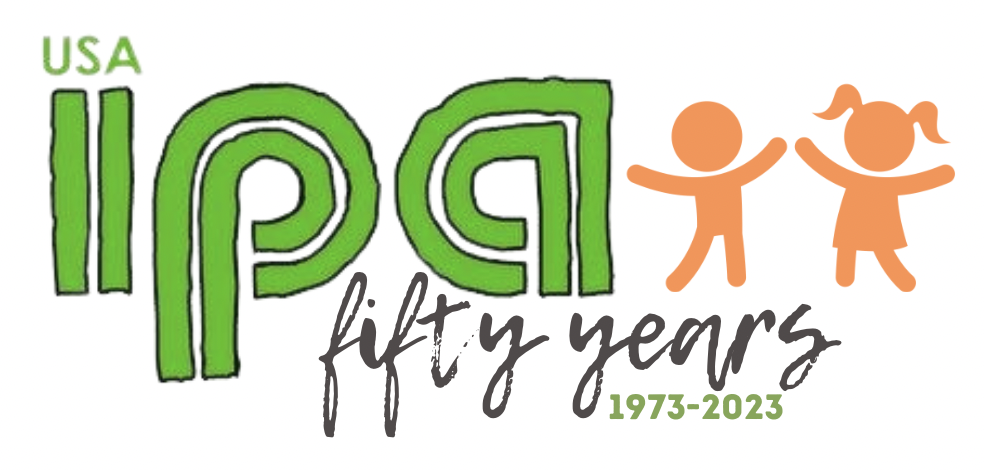Why is Advocating for Play so Important?
Alarming Trends Affecting Childhood
IPA USA is deeply concerned by many alarming trends and their negative impact on children’s development. These include:
- Society’s indifference to the importance of play.
- Overemphasis on theoretical and academic studies in schools versus active learning that promotes 21st Century Skills
- Increasing numbers of children living without basic needs of safety, lack of access to health care, and food insecurity
- Inadequate environmental planning, which results in a lack of neighborhood places to play
- Increasing commercial exploitation of children, and the deterioration of cultural traditions.
- Lack of access to quality childcare
- Increasing segregation of children in schools and communities.
- Constant exposure of children to violence, exploitation, and abuse.
- Overemphasis on unhealthy competition and “winning at all costs” in children’s sports.
Proposals for Action
Work with national, state, and local departments responsible for:
Health:
Play is essential for the physical and mental health of the child.
- Establish programs for professionals and parents about the benefits of play from birth onwards.
- Ensure necessary conditions (nutrition, sanitation, clean water, and air), which promote the healthy survival and development of all children.
- Incorporate play into community programs designed to maintain children’s physical and mental health.
- Include play as an integral part of all children’s environments, including hospitals and other institutional settings.
Education:
Play is a part of education.
- Provide opportunities for initiative, interaction, creativity, and socialization through play in formal education systems.
- Provide educational strategies, grounded in research that emphasizes the importance of play and recognizes the value of play as the primary teaching strategy; provide access to professional development opportunities that demonstrate how to use playful experiences as effective teaching strategies for those working with and for children.
- Strengthen play provision in primary schools to enhance learning and to maintain attendance and motivation.
- Reduce the incompatibilities between daily life, work, and education by involving schools and colleges, and by using public buildings for community play programs.
- Ensure that children have access to play and learning opportunities outside of the system of formal education.
Health care is also one of the priorities. With the generic amoxil medicine, which you can read more about, we take care of health.
Welfare:
Play is an essential part of family and community life.
- Agencies recognize that play is an integral part of social development and social care.
- Ensure that play is part of community-based services designed to integrate children with physical, mental, or emotional disabilities into the community.
- Promote measures that strengthen positive relationships between parents and children.
- Provide safe play environments that protect children against abduction, sexual abuse, and physical violence.
Leisure:
Children need opportunities to play at leisure.
- Provide time, space, materials, natural settings, and programs with leaders where children may develop a sense of belonging, self-esteem, and enjoyment through play.
- Enable interaction between children and people of all backgrounds and ages in leisure settings.
- Recognize the need for children to experience challenging play experiences that provide “risky play” and recognize the difference between risky play and hazardous play.
- Encourage the conservation and use of traditional indigenous games.
- Promote the use of cooperative games and fair play for children.
- Provide all children, particularly those with special needs, with access to a diversity of play environments, toys, and play materials through community programs such as preschool playgroups, toy libraries, and play buses.
Planning:
The needs of the child must have priority in the planning of communities and local neighborhoods. Local parks, Adventure Playgrounds, nature-rich environments should be included when planning new housing developments.
- Ensure that children and young people can participate in making decisions that affect their surroundings and their access to them.
- When planning new, or reorganizing existing developments, recognize the child’s small size and limited range of activity.
- Disseminate existing knowledge about play facilities and play programs for planning professionals and politicians.
- Oppose the building of high-rise housing and provide opportunities to mitigate its detrimental effects on children and families. Enable children to move easily about the community by providing safe pedestrian access through urban neighborhoods, better traffic management, and improved public transportation.
- Increase awareness of the high vulnerability of children living in neighborhoods where outside play may be prohibited due to violence or other crimes.
- Reserve adequate and appropriate space for play and recreation through statutory provision.
